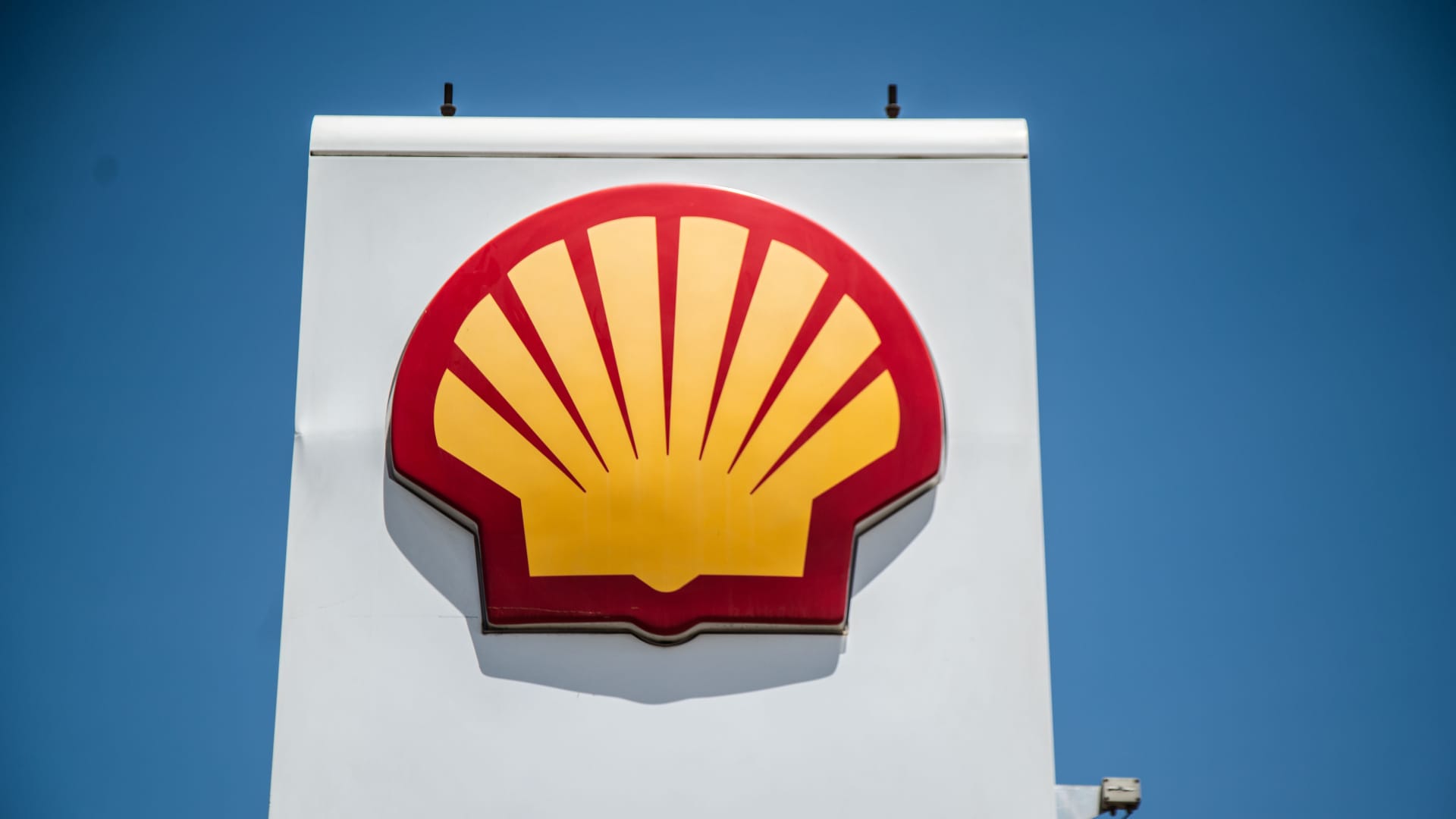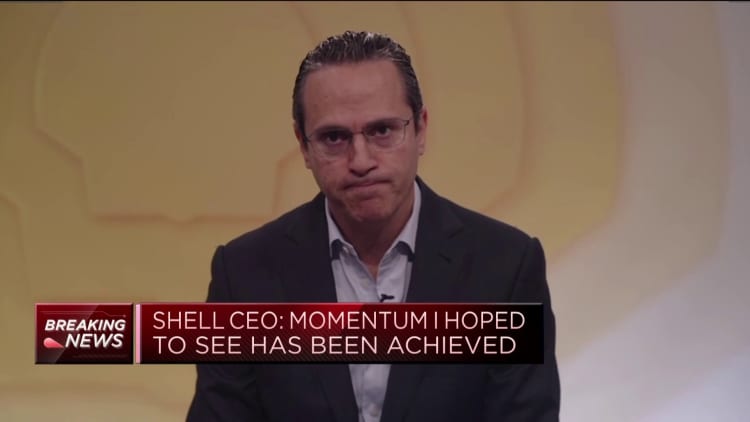Oil giant Shell posts full-year profit beat, announces $3.5 billion share buyback


A Shell logo displayed on a sign at a gas station in Nakuru, Kenya.
Sopa Images | Lightrocket | Getty Images
British oil giant Shell on Thursday beat expectations for full-year profit, announcing a 4% increase to its dividend and a $3.5 billion share buyback program.
Shell reported adjusted earnings of $28.25 billion for the full-year 2023, a 29% drop compared to its highest-ever annual profit of $39.9 billion the year prior.
Analysts had expected Shell’s full-year 2023 net profit to come in at $27.5 billion, according to an LSEG-compiled consensus.
Shell posted stronger-than-anticipated adjusted earnings of $7.31 billion for the final quarter of 2023.
The company said the results reflected strong liquefied natural gas trading and optimization margins, offsetting weaker oil products trading.
Shell announced a 4% increase in dividend per share for the fourth quarter and said a share buyback program of $3.5 billion will be carried out over the next three months. The firm added it had now completed another $3.5 billion of share buybacks announced in November last year.
Shares of the London-listed stock rose around 1% during early morning deals. The stock price is down more than 3% in the year to date.
Shell CEO Wael Sawan said that he was “pleased with the progress but with recognition that there is more to go.”
Asked by CNBC’s Steve Sedgwick whether the company is getting the balance right with its capital expenditure plans amid criticism the firm doesn’t do enough to invest in renewable energy, Sawan said the energy major has three key areas of focus.
“We have continued to strengthen the balance sheet through 2023, reducing it by over a billion dollars. On the shareholder distributions, we have in essence distributed 42% of our overall cash flow from operations to the tune of $23 billion,” Sawan said.
“And, on top of that, our commitment to net-zero emissions by 2050 is unchanged,” Sawan said, adding that the company had spent $5.6 billion on so-called “low-carbon” projects last year.
“So, we are finding the balance that allows us to continue to deliver energy security today while investing with a real focus on our competitive strength in the energy transition,” he added.
Net debt was $43.5 billion by the end of the year, compared with $40.5 billion at the end of the third quarter.
Weaker oil prices
Earlier this month, Shell cited impairment charges of up to $4.5 billion for the final three months of the year. The company said on Jan.8 that the non-cash impairment charge was primarily driven by macro and external developments, as well as portfolio choices, including its Singapore refining and chemicals hub, which Reuters reports it intends to sell.
Oil prices were slightly lower on Thursday morning.
International benchmark Brent crude futures traded down 0.3% at $80.31 per barrel, while U.S. West Texas Intermediate futures traded 0.3% lower at $75.66 per barrel.
Both Brent and WTI contracts fell around 10% in 2023, during a volatile trading year, with prices fluctuating amid geopolitical tensions and demand concerns.
U.S oil giants Exxon Mobil and Chevron are both scheduled to report earnings on Friday, while European peers BP and TotalEnergies are poised to follow suit next week.









